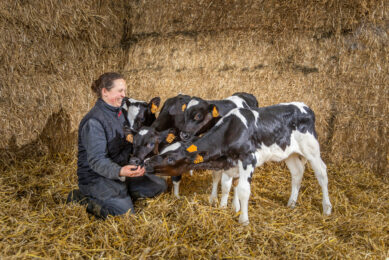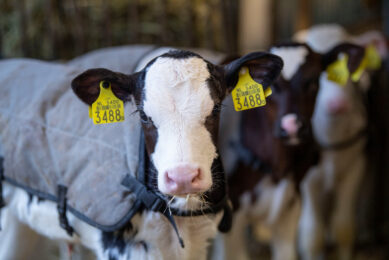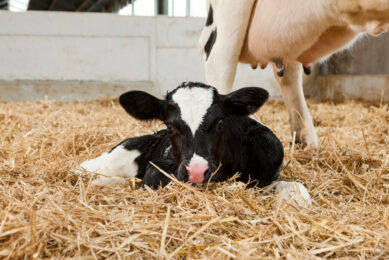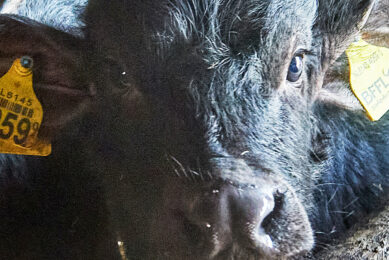Dairy calves need good passive immunity
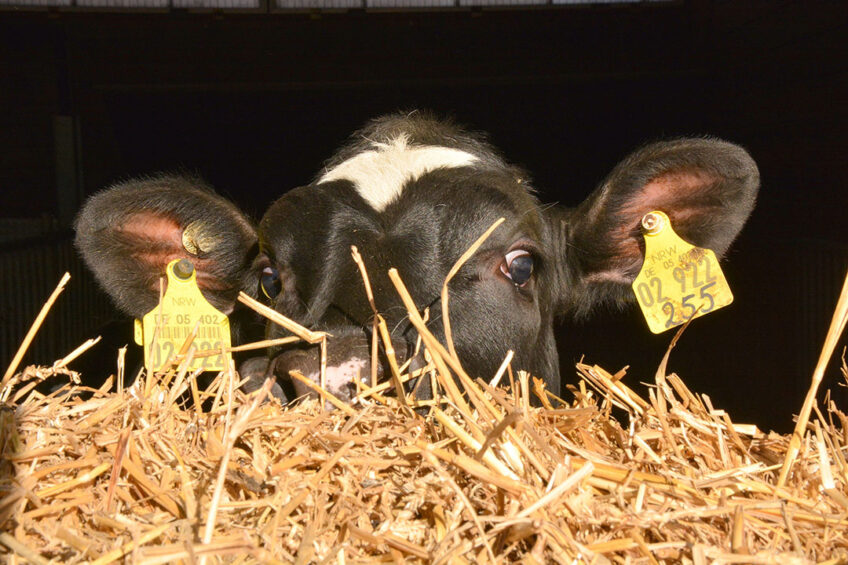
For dairy heifer calves to have a healthy start in life and go on to have good lactation, they need to have a strong passive immunity system.
This basically means that calves must receive their mother’s colostrum as soon as possible after birth to kickstart the building of a strong immune system.
The neonatal immune system at birth is naïve to the wide variety and types of pathogens present in the environment. Consumption of colostrum to provide circulating Immunoglobulin G (IgG) prior to the cessation of macromolecular transport is essential to ensure healthy calves.
Factors influencing IgG absorption
A tremendous number of factors may influence the absorption of IgG by calves, so blanket recommendations for feeding a particular amount of colostrum to all calves may be inappropriate. Many colostrum supplement products are available on the market, but some of these provide little additional circulating IgG. Therefore, it is essential that producers carefully evaluate claims to improve circulating IgG and animal survival.
During her presentation at the digital EuroTier exhibition, Lea Poppe, technical manager with EW Nutrition in Germany, delved into recent insights and innovative solutions to aid young calves. Low passive immunity in calves creates a number of problems, but essentially they can all lead to higher rearing costs for farmers.
Keeping calf pneumonia at bay
It is well-known that calves are susceptible to pneumonia and it is a significant disease that can be costly for any dairy farm. But which factors can keep pneumonia at bay? Read more…
Poppe said: “Inadequate serum lg levels in calves can lead to a negative impact on growth rates of the calves in their first 6 months, as well as a higher number of antibiotic treatments due to higher morbidity and also higher mortality.
“Together they lead to higher rearing costs, and research indicates that inadequate serum increased rearing costs for a dairy calf by € 60 and for a beef calf by € 90,” she said. “As well as this, the milk yield in the animal’s first lactation may be negatively affected by the low levels.”

Responses from the sector
The team at EW Nutrition wanted to find out what the situation was on dairy farms across the world and therefore surveyed 55 consultants and veterinarians from 5 countries, including Germany and the UK, in December 2020. Discussing the outcome, Poppe said: “It is worth highlighting that more than 54% of those surveyed think that the colostrum quality is at a stable level. And 69% answered no to the question ‘Do you think calves are sufficiently supplied with immunoglobulins by the colostrum they receive?’
And of all the experts we asked, 76% see a direct link between early occurring diarrhoea and a lack of passive immunity,” she said.
Scientific studies conducted in Munich also confirm the results of the survey. Only 41% of the calves in these studies conducted in 2015 were sufficiently supplied with immunoglobulins, and nearly a quarter were undersupplied. This situation of being undersupplied is called failure of passive transfer (FPT).
“In practice, this means a high number of calves have an immune deficit and need additional support if the farmer wants to maximise their genetic potential and avoid economic losses,” said Poppe.
“Additionally, the number of antibiotic treatments can be reduced, which is in the general public’s interest.

One of the experts actually said he thinks the pathogen load on some farms is so great that no amount of immunity will stop the calf from getting diarrhoea. This means the higher the pathogen pressure, the higher the need for support,” added Poppe.
In order to understand the issues surrounding passive immunity, she said it is important to first understand immunoglobulins which are proteins used by the immune system to identify and neutralise foreign substances. She also highlighted details of a trial undertaken in autumn 2020 when a dairy farmer in Saudi Arabia tested one of the products from EW Nutrition called Globigen Dia Stop in young dairy heifer calves.
How to rear healthy youngstock
Healthy youngstock paves the way for a healthy herd later on. It is therefore imperative to ensure strong bones, muscles, legs and hooves. The first 3 days the calf should have colostrum to take up antibodies – the quicker this happens, the better. Hygiene is a major factor when it comes to healthy calves, but what are the main points to consider? Find out more…
This product is a dietetic supplementary feed for the stabilisation of water and electrolyte balance to support physiological digestion. The farm tested 3 different dosages in calves with acute diarrhoea. The trial was conducted to set up a new diarrhoea treatment protocol on the farm. The trial concluded that 81–100% of the calves recovered within the application period of 3 and 4 days respectively. During her summary, Poppe said that it is important to support the calves’ immune system during the first weeks of life.

“By using the product Globigen, as an example, it is possible to tackle diarrhoea by binding pathogens,” she said. “Also, with this, it is possible to achieve a balanced and healthy gut microbiota and reach maximum genetic potential of the animals by optimising growth performance.
“All this can be achieved by using high level technology and decades of expertise,” she added.
Join 13,000+ subscribers
Subscribe to our newsletter to stay updated about all the need-to-know content in the dairy sector, two times a week.



